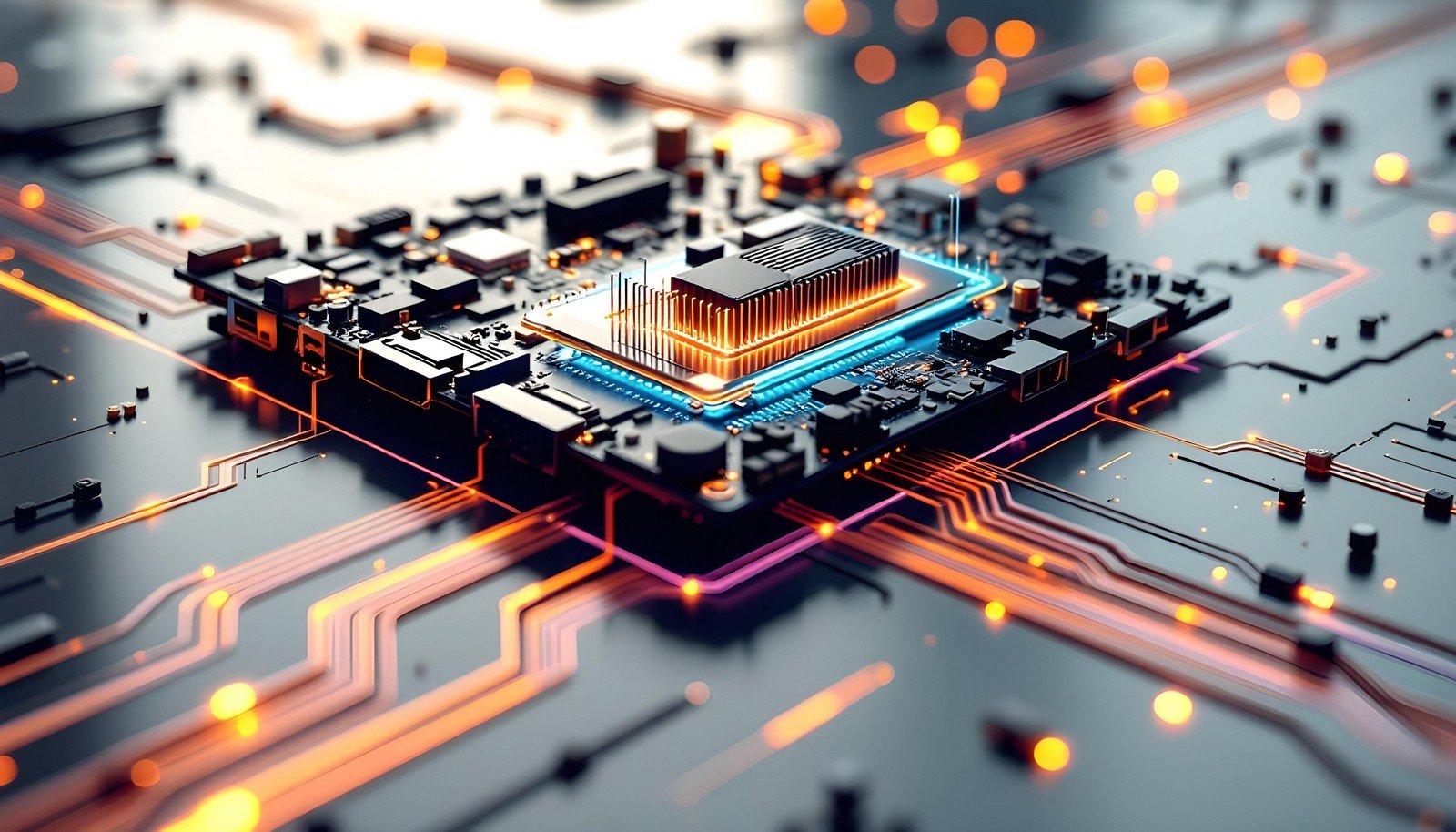Daughterboard

Quick Navigation:
- Daughterboard Definition
- Daughterboard Explained Easy
- Daughterboard Origin
- Daughterboard Etymology
- Daughterboard Usage Trends
- Daughterboard Usage
- Daughterboard Examples in Context
- Daughterboard FAQ
- Daughterboard Related Words
Daughterboard Definition
A daughterboard, also called a mezzanine board, is a smaller circuit board that plugs into and works in conjunction with the main motherboard or a primary circuit board. It expands the functionality of the main system by adding components such as processors, memory, or input/output interfaces. Unlike standalone components, a daughterboard requires the mainboard for operation, serving as an extension for specialized tasks in systems such as computers, telecommunications equipment, or embedded devices.
Daughterboard Explained Easy
Think of a daughterboard as an accessory for your mainboard, just like an extra toy piece that snaps into a bigger set to give it new abilities. For example, it can make your computer better at processing videos or add new connections like extra USB ports. It’s small but very helpful!
Daughterboard Origin
Daughterboards became more prevalent in the 1970s and 1980s with the rise of modular computer systems. They allowed engineers to add new features or adapt systems without completely redesigning the main motherboard.
Daughterboard Etymology
The term “daughterboard” derives from its relationship to the motherboard. It implies a smaller, dependent “daughter” component that extends or enhances the “parent” motherboard.
Daughterboard Usage Trends
Over the years, daughterboards have remained essential in industries like computing and telecommunications. Their usage is widespread in systems requiring modular designs, allowing for upgrades and customization, such as in gaming PCs, medical devices, and network equipment.
Daughterboard Usage
- Formal/Technical Tagging:
- Electronics
- Circuit Design
- Embedded Systems - Typical Collocations:
- "Daughterboard assembly"
- "Expansion daughterboard"
- "Daughterboard slot connection"
Daughterboard Examples in Context
- A graphics daughterboard enhances the visual processing capability of the motherboard in gaming computers.
- Network devices often utilize daughterboards to add more Ethernet ports or specialized connectivity.
- Industrial control systems use daughterboards to integrate additional sensor inputs for better data analysis.
Daughterboard FAQ
- What is a daughterboard?
A daughterboard is a secondary circuit board that expands the functionality of a motherboard. - How is a daughterboard different from a motherboard?
A motherboard is the main circuit board, while a daughterboard is a smaller extension designed to add functionality. - What are common uses of daughterboards?
They are used for adding components like graphics processing, network interfaces, or additional memory. - Can a daughterboard work independently?
No, it relies on the motherboard to function. - Where are daughterboards commonly used?
In computers, telecommunications devices, and industrial equipment. - How does a daughterboard connect to a motherboard?
Through connectors like PCI slots or custom sockets. - Are daughterboards upgradeable?
Yes, many systems are designed to allow users to replace or upgrade daughterboards. - What materials are used in daughterboards?
They are typically made from PCB (Printed Circuit Board) material with copper traces. - Can a daughterboard cause compatibility issues?
Yes, a mismatch in hardware specifications can lead to compatibility problems. - Why are daughterboards used in modular systems?
They allow for easier upgrades, repairs, and customization without replacing the main motherboard.
Daughterboard Related Words
- Categories/Topics:
- Modular Systems
- Circuit Expansion
- Peripheral Integration
Did you know?
In high-performance computers, daughterboards are often used to house specialized processors for tasks like artificial intelligence or video rendering. They enable developers to upgrade hardware efficiently without replacing the entire system.
PicDictionary.com is an online dictionary in pictures. If you have questions or suggestions, please reach out to us on WhatsApp or Twitter.Authors | Arjun Vishnu | @ArjunAndVishnu

I am Vishnu. I like AI, Linux, Single Board Computers, and Cloud Computing. I create the web & video content, and I also write for popular websites.
My younger brother, Arjun handles image & video editing. Together, we run a YouTube Channel that's focused on reviewing gadgets and explaining technology.



Comments powered by CComment